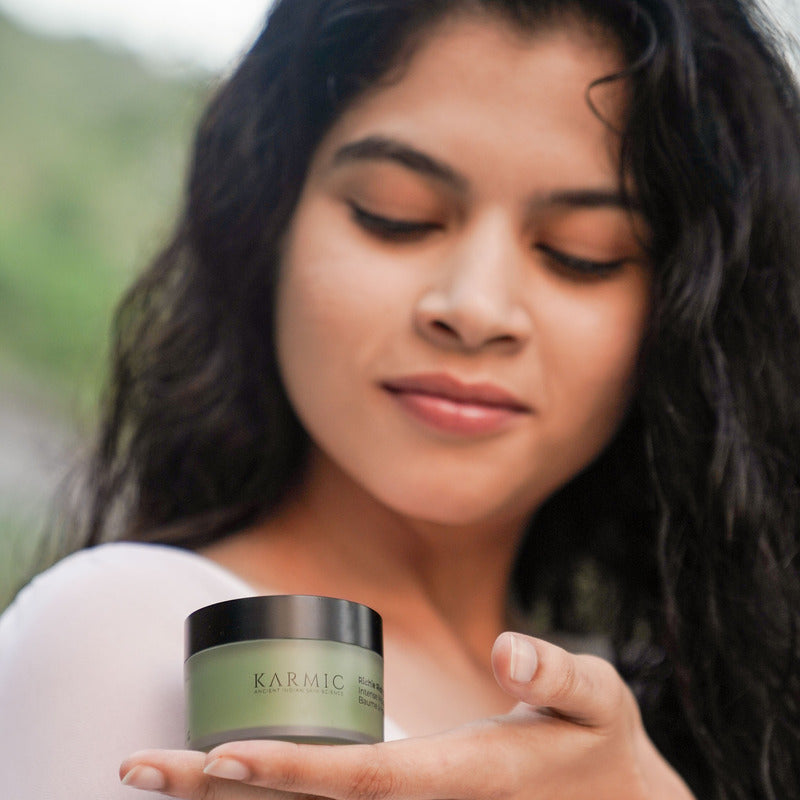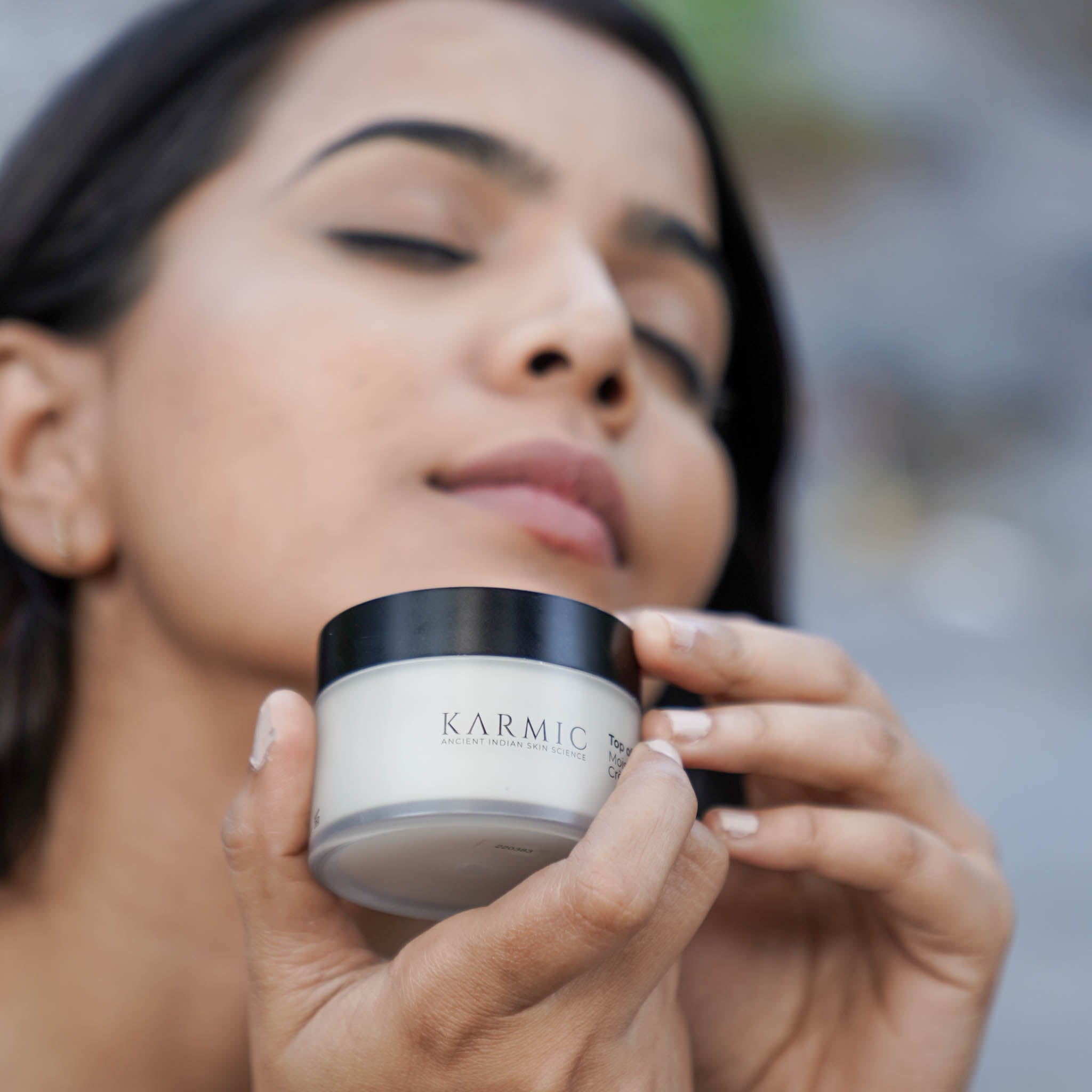Introduction:
Menopause brings a lot of changes to a woman's body, and one big change happens to the skin. As oestrogen levels drop, the skin can become drier, thinner, and more sensitive. Because of this, it's important to have a good skincare routine that keeps the skin hydrated, elastic, and healthy. Choosing the right moisturising products can help manage these issues and keep your skin glowing.
Understanding How Menopause Affects the Skin
When you go through menopause, your hormones change, and this can affect your skin in several ways:
Dryness: Lower oestrogen levels reduce the skin's natural oil production, making it feel dry and tight.
Less Elasticity: With less collagen, the skin starts to sag and fine lines appear.
Thinner Skin: The skin gets more fragile and is easier to irritate or damage.
More Sensitivity: Your skin might react more to things like weather or skincare products.
More Wrinkles and Age Spots: Years of sun exposure combined with hormone changes can cause spots and uneven skin tone.
7 Moisturising Tips for Sensitive Menopausal Skin
Having a skincare plan in place can really help manage these changes and keep your skin looking and feeling its best.
1. Use a Hydrating Night Serum
Adding a hydrating serum to your evening routine can help your skin recover overnight. Look for serums with:
- Bakuchiol: A gentle, natural option instead of retinol, which helps renew skin.
- Hyaluronic Acid: Pulls moisture into the skin and keeps it hydrated.
- Peptides: Help boost collagen and improve how firm your skin feels.
Putting on a serum before bed gives your skin the chance to repair while you sleep.
2. Choose Rich Moisturisers for Extra Hydration
Skin tends to lose moisture more quickly during menopause. That’s why rich, nourishing moisturisers are so important. Try products with:
- Ceramides: Help build a stronger skin barrier to lock in moisture.
- Squalane and Natural Oils: Hydrate without making your skin feel greasy.
- Shea Butter and Aloe Vera: Soothe irritation and keep skin soft.
Use a moisturising cream both morning and night to keep your skin hydrated all day.
3. Pick a Gentle Cleanser
Avoid strong cleansers that contain alcohol or artificial scents—they can dry your skin out more. Instead, go for:
- Cream or Oil-Based Cleansers: Clean the skin gently without stripping its natural oils.
- Micellar Water: A soft way to remove makeup and dirt.
A gentle cleanser keeps your skin fresh without drying it out.
4. Always Wear Sunscreen
Skin becomes more vulnerable to sun damage after menopause. Using a daily sunscreen with at least SPF 30 helps prevent:
- Wrinkles and fine lines.
- Dark spots or uneven skin tone.
- Looser skin caused by UV exposure.
Put on sunscreen every morning—even when it’s cloudy—and reapply if you’re staying outside.
5. Add Antioxidants to Your Routine
Antioxidants fight free radicals that speed up skin ageing. Look for products with:
- Vitamin C: Helps even out skin tone and adds brightness.
- Vitamin E and Green Tea Extract: Shield skin from pollution and stress.
Using an antioxidant-rich serum in the morning can give your skin a healthy glow.
6. Drink Water and Eat Well
Drinking enough water keeps your skin hydrated from the inside. Aim for at least 8 glasses a day. Eating a balanced diet also helps:
- Omega-3s: Found in fish, flaxseeds, and walnuts, they help keep skin firm.
- Antioxidant-Rich Foods: Like berries, greens, and nuts to reduce ageing.
- Collagen-Boosting Foods: Bone broth, eggs, and citrus fruits support skin strength.
These habits help your skin stay healthy and hydrated.
7. Keep Stress in Check
Hormonal changes can make stress worse, which might show up on your skin. Try to lower stress by:
- Doing yoga or meditation.
- Exercising regularly.
Practising deep breathing.
Lower stress levels help improve your skin and your overall mood.
Other Useful Skincare Tips
Exfoliate Gently
Exfoliating helps remove old skin cells, making your skin smoother and helping your products work better. Use gentle exfoliants like lactic acid or fruit enzymes. Doing this once or twice a week is enough to keep your skin fresh.
Use Facial Oils
Oils such as rosehip, argan, and avocado oil can add extra moisture. Put them on after your moisturiser to lock in hydration. These oils are rich in good fats and vitamins that help sensitive skin.
Avoid Harsh Products
Stay away from skincare products that have alcohol or strong perfumes. These can make sensitive skin worse. Instead, choose products that are fragrance-free or use natural ingredients.
Professional Skincare Options
Hormone Replacement Therapy (HRT)
HRT can improve skin by increasing oestrogen, making it thicker and more hydrated. But it’s not right for everyone, so speak to a doctor before starting it.
Skin Treatments You Can Try
There are treatments done by professionals that can help improve skin during menopause:
- Chemical Peels: Smooth out rough skin and lighten dark spots.
- Microdermabrasion: Gently removes dead skin for a smoother look.
- Laser Therapy: Encourages collagen and reduces wrinkles.
These treatments can refresh your skin with little recovery time.
Injectable Options
For more noticeable changes, some women choose injectables:
- Botox: Softens wrinkles by relaxing facial muscles.
- Dermal Fillers: Add volume to areas that have thinned with age.
Speak to a dermatologist to see what options might work for you.
Lifestyle Tips for Healthy Skin
Sleep Well
Getting 7–9 hours of sleep helps your skin repair overnight. Poor sleep can lead to dullness and more visible signs of ageing.
Avoid Smoking and Limit Alcohol
Smoking and drinking too much alcohol can dry out your skin and speed up ageing. Cutting back can really benefit your complexion.
Stay Active
Regular exercise boosts blood flow and brings oxygen and nutrients to your skin. It also helps manage menopause symptoms and mood swings.
Conclusion
Menopause changes your skin, but you can still keep it looking healthy and glowing. Here’s a quick recap:
- Keep your skin hydrated with serums, moisturisers, and oils.
- Use SPF daily to protect against sun damage.
- Eat well and drink plenty of water.
- Manage stress and get enough rest.
- Explore professional treatments if needed.
By taking care of your skin and overall wellbeing, you can feel confident and look great through every stage of menopause.




